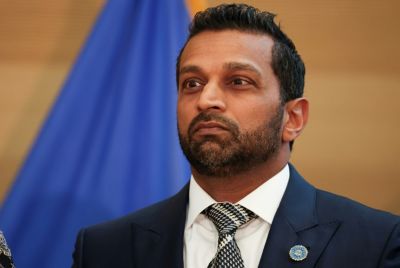Trump Administration Under Fire After Being Caught Lying About DC Shooter Vetting
Investigations confirm Afghan national who ambushed two National Guard members was vetted

The damning truth has emerged that the D.C. shooter was vetted, and the Trump administration's denial is unraveling under scrutiny.
Initial assertions by the White House declared the attacker had slipped through the cracks, unvetted. But newly confirmed records reveal that the suspect was admitted under existing resettlement protocols and had undergone biographic and biometric checks.
The revelation exposes a stark contrast between official rhetoric and the suspect's verified screening history, sparking political backlash and raising serious questions about credibility.
Vetted — Not 'Unvetted': What the Records Show
According to the Department of Homeland Security (DHS), the suspect, identified as 29-year-old Rahmanullah Lakanwal, an Afghan national, entered the United States in 2021 under the refugee-resettlement programme Operation Allies Welcome (OAW).
Under OAW, every Afghan admitted was required to pass 'biometric and biographic screenings conducted by intelligence, law-enforcement and counterterrorism professionals', the DHS said.
Further, according to the federal authorities overseeing immigration and asylum decisions, Lakanwal was later granted asylum, a status that legally requires documented vetting and background checks.
In short, the official record stands in sharp contradiction to repeated claims that the shooter entered the country 'unvetted' or 'unknown'.
Administration's Claims and Public Denial
In a widely circulated video after the shooting, US President Donald Trump declared that the attacker had been 'flown in' under Biden's chaotic evacuation of Afghanistan, and rejected any notion of prior vetting, claiming 'nobody knew who was coming in'.
He used the incident to justify sweeping immigration crackdowns, ordering a broad re-examination of asylum and green-card cases tied to past Afghan admissions.
Yet these statements directly conflict with DHS's description of the screening process and the confirmed asylum grant, undermining the administration's narrative that the suspect was an 'unknown' threat.
Public filings and law-enforcement statements confirm that Lakanwal previously served with US-backed Afghan forces, including units linked to the Central Intelligence Agency (CIA), before being evacuated to the United States.
At a press conference, the head of the Federal Bureau of Investigation (FBI) confirmed the agency is investigating the shooting as a possible act of terrorism.
Authorities have also publicly disclosed that they recovered a .357 Magnum firearm allegedly used in the ambush, and that surveillance and biometric records tied Lakanwal to the 2021 evacuation and resettlement process.
Thus, both his past affiliations and his US immigration journey are a matter of public and documented record.
Political Weaponisation
The disconnect between what the records show and what the White House argued has immediate implications for public trust. When officials assert 'unvetted foreign threats' but evidence says otherwise, they risk eroding confidence not only in their rhetoric but in policy decisions built around it.
Immigration groups and advocacy coalitions argue that normative, documented vetting was conducted, and that the shooter's actions should not be used to cast suspicion on all Afghan evacuees. One advocate noted that Afghans resettled under OAW underwent 'some of the most extensive security vetting of any population entering the country'.
On the flip side, some lawmakers are calling for expansive new immigration rules. The discrepancy between documented vetting and official claims, however, leaves those proposals vulnerable to criticism as politically opportunistic rather than fact-based.
Mischaracterising a vetted individual as 'unvetted' and 'unknown' can deepen xenophobia and stigma against entire communities, while deflecting focus from systemic failures or individual responsibility.
It may also undermine due process. If future immigration or asylum decisions are shaped by political reactions to this case rather than grounded in actual security vetting records, there is a risk of overreach, profiling, and unfair treatment.
When high-level statements are clearly contradicted by public records and primary-source documents, the foundation of public trust in government accountability weakens, especially at a time when the country is already deeply polarised.
© Copyright IBTimes 2025. All rights reserved.




















